5 waste management systems benefitting all
The increasing volume and complexity of trash caused by modern economy is threatening human health and the planet. Being able to deal with waste- be it solid, liquid or electronic – appears to be one of the most challenging and pressing issue. Fortunately, men and women around the world are taking actions to integrate sustainable management systems that are giving a second life to these unexpected resources. From high-tech solutions to the implementation of river barriers, discover 5 initiatives that redefine the waste management system in order to make it more successful and inclusive #EarthBeats.
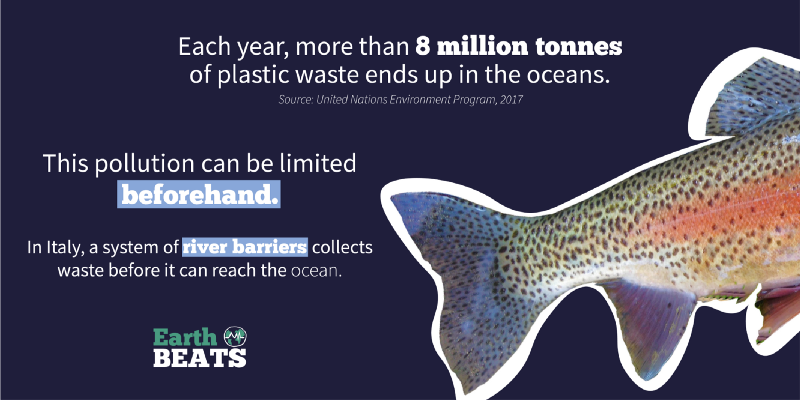
SEADS river barriers collect floating waste before it can reach the seas
This number is now widely shared: 8 million tonnes of waste ends up in the seas every year (United Environment Program, 2017). But did you know that only 10 rivers are responsible for 90% of that waste that enters the seas and oceans? The start-up SEADS (Sea Defense Solutions) is developing an ingeneous system of “blue barriers” that can be replicated in any rivers from the Nile to the Mekong. The barriers catch the floating plastic and redirect it in the collection basins. Then, individuals in the area can come collect this waste and sell it for recycling, thus developing an activity around the barriers and making sure that the entire community can benefit from them. SEADS is currently negotiating with the municipality of Jakarta to test the system on the Ciliwung river. Read more in The Hindu, Haaretz, The Philippine Star (all in English) or Le Figaro (in French), Corriere della Serra (in Italian) and Dong-A Ilbo (in Korean).
In India, I Got Garbage is proving that technology can power the waste revolution
It has been 5 years since MindTree, Indian IT giant, has launched I Got Garbage, an app that is empowering rag pickers in 7 Indian cities. Waste recyclers use the app to increase their efficiency and thus their income while companies or households are using it to hire the waste-pickers’ services. Thanks to the data entered by the waste-pickers in the app (weight, type of waste collected etc.), the companies using IGG can reflect on the waste they produce and use this information for personalized waste management plans. To this day, the app has worked with more than 10,000 rag pickers and scrap dealers, who have been able to recycle more than 52 million kgs of solid waste and compost roughly 127 million kg of organic waste. Read more in The Nation, Haaretz, The Hindu, Yicai Global (all in English), L’Orient Le Jour, L’Economiste (both in French) and Corriere della Serra (in Italian).
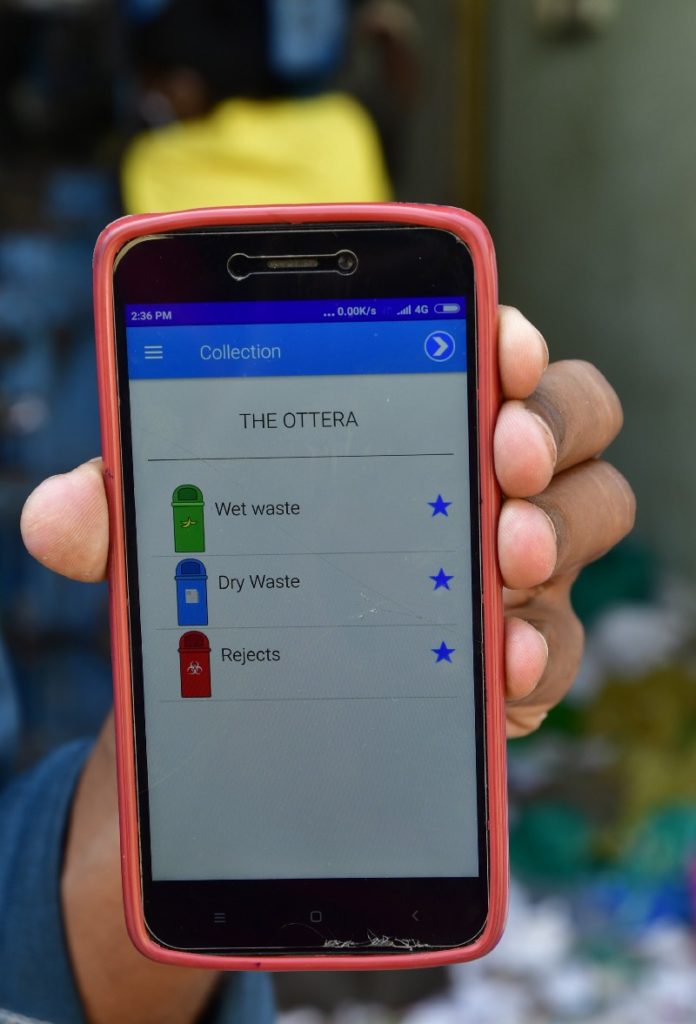
Ifassen is turning plastic into a trendy accessory while fighting for Moroccan women’s empowerment
In Morocco, the accumulation of plastic bags had become a usual sight in the landscape without anyone doing anything about it. Faïza Hajji founded in 2006 Ifassen (meaning “hands” in her local dialect) to transform single-use plastic into a sustainable and re-usable object: high-quality and ethical bags. The making of those fashionable accessories relies on traditional weaving techniques and the Alfa, a resistant local plant used to weave baskets. This project led to the recycling of more than 51,000 plastic bags. Such an initiative has also contributed to local awareness concerning the danger of plastics and comforted the government’s effort in launching its Zero Mika (Zero Plastic) policy which has been banning single-use plastic bags’ production, import, sale and distribution since 2016. Read more in The Nation, The Hindu (in English), El Heraldo (in Spanish) and L’Economiste (in French).
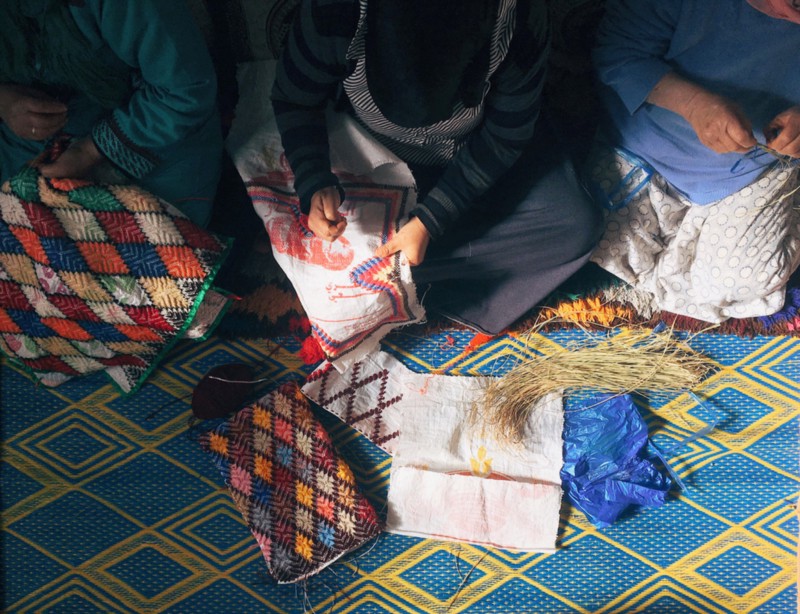
Prato’s circular economy: the modern renaissance of Tuscan textile recyclers
Of the nearly 100 million tonnes of textiles produced worldwide every year, a staggeringly small one percent is all that gets recycled. In 2018, roughly 143,000 tonnes — 15 percent of the global total — were recycled in the Italian city of Prato. This Tuscan city 24 km from Florence is the world’s capital of post-consumer textile processing, which makes it very appealing for big brands in search of more sustainable production models. Prato counts roughly 7,200 companies, almost 40,000 employees and a turnover of five billion euros (USD 5.6 billion) per year. This city’s production of regenerated fabrics started in 1843 and in 2017 a spontaneous movement led to the creation of an association that brings together spinning, dyeing, finishing, woolen mills, traders of raw materials : Astri Recycling. Discover more in The Nation, Yicai Global (in English) or L’Economiste (in French).
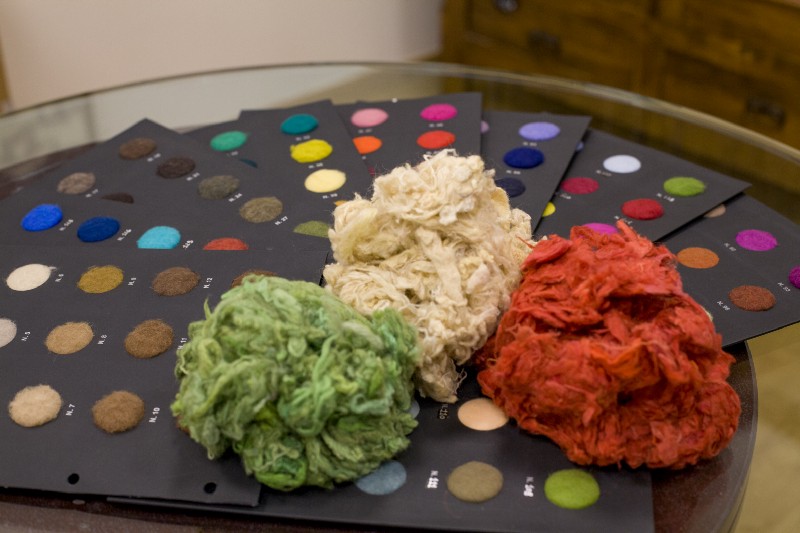
In Lebanon, Ecoserv is raising awareness on the need of better e-waste management
Due to the increasing use of digital services, the amount of electronic waste is rapidly growing every day. E-waste contains various elements that when recycled can be a great source of income for informal waste-pickers, yet the extraction can be extremely nocive due to contact with dangerous substances. In Lebanon, the association Ecoserv is raising awareness on the possibility of recycling such waste in a safe and professional manneer. The NGO has been able to collect more than 15 tonnes of e-waste. Read more in Haaretz, The Hindu (in English) or L’Orient Le Jour and L’Economiste (in French).
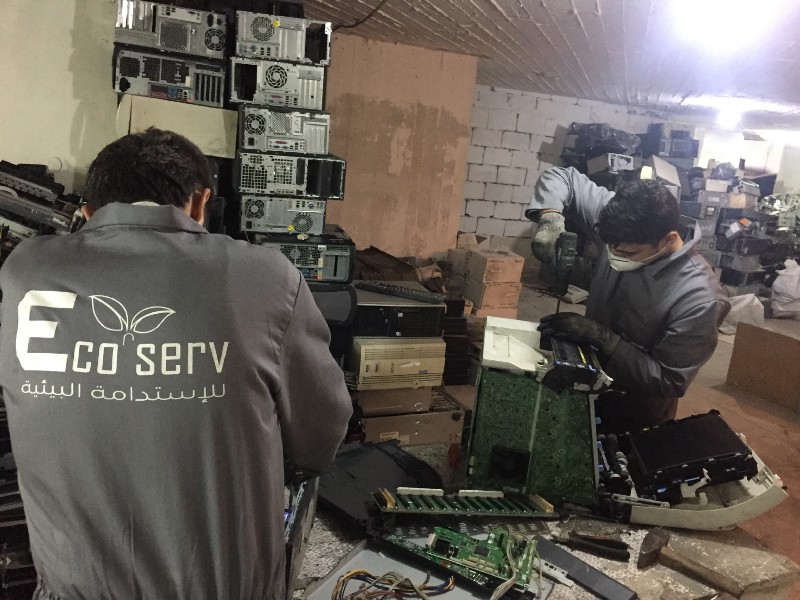
Circo Reciclado is showing how fun environmental education can be
All the above initiatives show the importance of empowering the community in tackling waste. However, the ability to structure better waste management system also relies on the population’s willingness to take part in such effort. An inclusive approach to new management system is thus inherently connected to a comprehension of the importance of recycling/upcycling all waste as a way to mitigate effectively its disastrous consequences. Circo Reciclado believes that pollution is due to a lack of education and is therefore educating kids in a fun way about recycling and waste management. This dynamic group of clowns performs frequently in schools and educational institutions to introduce key ecological concepts to kids. Since its creation in 2012, this educative circus has raised the awareness of 45,000 students in Argentina contributing to a better environmental education. Read more in Yicai Global, The Hindu, Haaretz, and Corriere della Serra (in Italian).
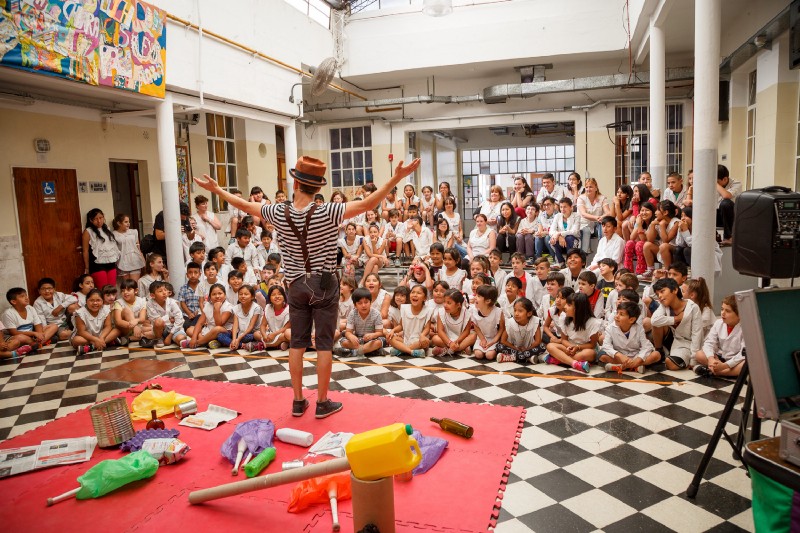

While citizens mobilize for Earth Day, 18 media outlets investigate local initiatives against pollution and waste. The collaborative editorial operation Earth Beats gathers renowned newspapers: including Le Figaro, Corriere, Haaretz, L’Economiste, La Nacion, Yicai Global, Delo, L’Orient Le Jour, The Philippine Star and The Hindu and more. La publicité: Rachat de voiture HS | Vendre voiture accidentée The operation is coordinated by Sparknews with the support of ADEME, the UNESCO MAB Programme, Le Jour de La Terre, Impact Hub and CDC Biodiversité.
You, readers, citizens, leaders, investors, consumers, can broadcast these solutions, so that tomorrow’s world remains sustainable.





